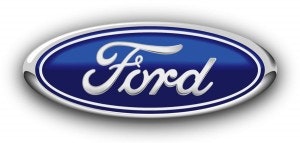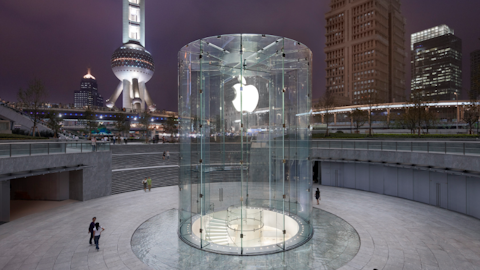
The situation at Myanmar
Myanmar had been shut off from the western world for over half a century on account of its oppressive military regime. But with the new quasi-civilian government taking over, this is fast changing. Many nations, including those within the European Union, have lifted their erstwhile bans.
Last year the US government relaxed certain restrictions that previously did not allow investment in Myanmar. However, what possibly made the decision for Ford is the announcement by the Treasury in March this year that US companies can now do business with some of the country’s local banks.
Ford’s entry
Ford Motor Company (NYSE:F) will be the first big automaker to open sales and service showroom together with a spare parts warehouse in the country. The showroom will open at Yangon towards the end of the year. The company has made a deal with local conglomerate Capital Diamond Star Group for this venture.
The Blue Oval has selected its partner well. The group also has the sole import and distribution rights of PepsiCo’s flagship Pepsi , 7-Up, and Mirinda brands through another group company. That means the company is conversant with the western ways of doing business.
The first vehicles to be launched are the F-series pick-ups and the Ford Ranger. For now, Ford Motor Company (NYSE:F) will import the vehicles from the US and Thailand. The company intends to expand to all parts of the country, although it does not harbor any immediate interest in manufacturing locally.
The first mover advantage
The Myanmar auto market is small, but holds significant promise. There are some encouraging trends there that are indicators of future growth. For starters the official import figures reveal that car sales have surged by almost 50% since the government lifted import restrictions in October 2011. Still the country has one of the lowest per capita car ownership rates in the world: about 10 in 1000.
It is estimated that over 80% of the cars in Myanmar are more than 10 years old, and some models even date back four or five decades. People opt for second hand Toyota Motor Corporation (ADR) (NYSE:TM), Nissan, and Honda models. But this can change with time. The country has yet to wake up to the economic developments that have taken neighboring countries like China and India by storm.
It is almost unbelievable that less than 5% of Myanmar’s entire population of 60 million use the Internet. Once Myanmar starts catching up with the rest of the world, the worn out cars will start losing their appeal. People will demand new cars, warranties, and service.
This is exactly where Ford Motor Company (NYSE:F) will want to cash in. The company expects good demand for its passenger cars, trucks, and SUVs.
Ford’s presence in Asia pacific
Ford’s entry is Myanmar is part of its plan to grow its presence in the Asia-Pacific region. China, India, Australia and South Africa, together with the Southeast Asian countries of Indonesia, Malaysia, Philippines, Thailand, and Vietnam, make up Ford’s Asia Pacific Africa segment. This segment sold over 1 million vehicles in 2012.
In the five Southeast Asian countries Ford Motor Company (NYSE:F)’s wholesale volumes in 2012 were 95,000 vehicles, up from 74,000 in 2011. The company held approximately a 2.6% market share.
These markets are becoming increasingly important in the context of the ongoing European turmoil, as well as Ford Motor Company (NYSE:F)’s plans to sell 8 million vehicles annually by 2015.
Who is next?
If the battered Corollas are the current top picks in Myanmar, how it is possible that the Japanese auto giant Toyota will not eye this market? There has been some succession of events that clearly indicate that an announcement from Toyota may not be far off.
A few months back representatives from Japan’s leading businesses, including Toyota, visited Myanmar for enhancing trade relations between the two countries. Following this, Japan promised to provide support to the tune of $200 million for a special economic zone in Myanmar. Next, the Japanese law firm Nishimura and Asahi, which handles Toyota and its related companies, has announced it is setting up offices in Thailand and Myanmar.
According to industry sources Toyota is conducting a feasibility study for opening a manufacturing facility in Myanmar.
Excluding China, Toyota Motor Corporation (ADR) (NYSE:TM) sells its vehicles in some 17 Asian countries. The company, which was the largest auto maker in the world in 2012, is planning to achieve the unprecedented 10 million in annual units sold by the end of this year.
With the ongoing territorial disputes marring China’s near term prospects and softness in domestic market due to the ending of a government incentive scheme for eco-friendly vehicles, Toyota will need to achieve this lofty target from other markets.
Presently analysts are expecting Toyota to report earnings around $8.77 billion for its 2013 fiscal which ended on March 31.
Now that Ford has arrived in Myanmar and Toyota Motor Corporation (ADR) (NYSE:TM) may also head into this market, it is natural that General Motors Company (NYSE:GM) will also make plans for Myanmar. The company’s spokesperson Alan Adler has said that with the lifting of restrictions, General Motors Company (NYSE:GM) may come back to the South-east Asian country.
The company is having a great run in the neighboring country of China. Together with its joint venture partners it sells more vehicles in China than it does in the US, and this has been the situation since 2010. The company is China’s biggest automaker, holding around 15.1% of the total market according to a Bloomberg report. General Motors Company (NYSE:GM) is also well established in India and Thailand.
The proximity of the existing markets is always an advantage for entering any new region.
Last word
The untapped markets of Myanmar will do well to expand Ford Motor Company (NYSE:F)’s presence in these parts of Asia. It is true that risks remain in terms of political backlashes and economic uncertainties, but the possibilities are also numerous. Out of the big auto players Ford has been the first to arrive, and it can use this as a competitive edge against its bigger rivals like GM and Toyota.
Eshna De has no position in any stocks mentioned. The Motley Fool recommends Ford and General Motors. The Motley Fool owns shares of Ford.

